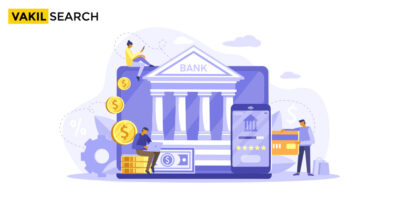Finding investors who are willing to invest in your startup can be done with some tried-and-tested methods, as discussed in the following article.
Introduction
A startup or a small business can be a great idea if you have funds and a unique idea. However, it is essential to remember that the funds for start-up are not required to come all from you or a banking institute. You can seek various ways to ease a bit of the burden on your resources. These can include loans having lower rates of interest or financiers who receive payment only when the business generates profit. We have discussed a few of the best strategies that one can employ to Raise Capital for Startup Business. They are as follows:
What is Startup Capital?
Startup capital is the funding needed to launch a new business. It encompasses all the costs that new business owners incur before they can start generating revenue. This could include equipment purchases, rental fees, licenses, marketing and advertising costs, and even salaries of the initial employees. Startup capital is typically gathered through personal savings, loans, grants, investors, or crowdfunding platforms.
Understanding Startup Funding Rounds
Startup funding rounds are stages at which a startup business seeks significant investment to scale and grow. These rounds usually progress from seed funding to Series A, B, and C rounds, and sometimes further. At each stage, the startup generally raises more capital, but the stakes become higher as well, with investors expecting a significant return on their investment.
An impactful logo design is particularly important during the early stages of startup funding. At this point, investors are evaluating the potential of your business. A well-designed logo can demonstrate the clarity of your vision and the strength of your branding strategy, vital factors that can help secure the investment you seek.
The Startup Funding Stages
Seed Funding:
This is the initial stage where the business idea is still being developed. Funds raised during this stage are often used for market research, product development, or preparing a business model.
Series A:
At this stage, the startup is expected to have a clear business plan. The funds raised are typically used for enhancing the product, and user base, or scaling the operations.
Series B:
Here, businesses are expected to have a working business model. The capital raised is usually invested in expanding the business further, improving the product, or entering new markets.
Series C and beyond:
During these stages, the startup is typically well-established, and funds are raised for scaling operations on a larger scale, acquisitions, or preparing for an IPO.
Go For Private Investors
Private investors are of two types: Angel investors and Venture capitalists. In return for their compensation, they usually receive company shares. These shares are those which aren’t openly traded. Both types are explained as follows:
Angel Investors
One with a high net worth and who possesses the resources, capital, and experience to make a business thrive is an angel investor. If such an investor joins the party, he may contribute enough to minimise the requirement for more funders.
Angel investors usually demand a high rate of ROI. What’s more, the business case must be solid as they won’t be investing in just anything. They usually invest their own funds while a business is just starting up.
Venture Capitalists
When a business is expanding and is sure to take on a riskier undertaking, the need for venture capitalists arises. They utilise the funds of the investors rather than their own.
Even if venture capitalists can back a small business, they generally enter a business when it has already been launched. This is because the company already has plans for changes and needs fundraising ideas. Actually, this latest venture may prove to bring a change.
Opt For Peer to Peer Loaning
Peer to Peer firms allows individuals to take loans by connecting people or businesses that require funds with financiers. The prospective financiers earn a credit score from the peer-to-peer credit facility once applicants duly fill up an application form. They might then decide if they want to make contributions.
The financiers get a per month repayment on their funding along with interest. In this approach, they do not hold any stock in the companies they invest in. The most obvious analogy is to loans provided by banking institutes.
But there is an exception that the financier is receiving a higher return compared to what he would have earned through a typical bank account. Another exception is that the borrower is paying lower interest compared to what would normally be repaid in full to a bank. Although there is a risk factor since the government doesn’t secure the investors’ funds.
Pick Donation-Based Crowdfunding
In the instance mentioned above, the donated amount of money is typically less and is not likely to be repaid. Money obtained with donation-based crowdfunding is generally utilised for a charitable purpose, for example, aiding families or individuals who have suffered a tragedy.
This type of crowdfunding can aid in gaining much-required monies for NGOs or charities.
Look for Investors Within Your Family
Asking your family members for money might be the best way to gain investment for your new business or start-up. Have a conversation with your loved ones about the necessities of your business. Determine whether you only need to have a loan from your family or investment money. For each party, a loan can be the simplest solution as you can merely repay everything over time along with interest.
A financial investment implies that family or acquaintances will possess a share in your start-up and endure certain risks, too. On the contrary, in case you invest, you can earn more money upfront. Moreover, unlike a loan, you would not be required to repay it after a while. The financiers will collect funds only when your company starts gaining profit.
Still, it is better not to take your close ones too lightly or behave as if everything is arranged just because you have a connection with them. Make a convincing pitch and notify them of the timeframe for when they should anticipate getting their deposit back. You must tell them about the potential risks if they are financiers.
Connect with Companies or Institutes in Your Area of Interest
There may be possibilities that you are already wary of folks working in a similar field to yours. You might contact them to inquire whether they know a person who might be willing to contribute funds to your business.
You might devote a significant amount of time gathering information as it’s doubtful that you will find a financier in just a phone call. For building connections, you may even have to do a lot of calling or appear at industry events.
However, if you carry on with the search, you may locate that one person who appreciates your business idea or product enough to finance it.
Do you aware of the Must Read Topic: New Year Resolution for Startup Enthusiast
Equity Crowdfunding
Equity crowdfunding is a specific form of crowdfunding that involves financiers buying shares in the business. Even though their initial outlay is not returned, and the company is at the stage of making revenue, they’ll receive a part of the profits.
The funds in the form of investments are big. They usually start in the denomination of thousands. As there isn’t any reimbursement assurance, this crowdfunding type has greater risks. However, the gains may also be significantly bigger compared to those of conventional funding.
In the initial phases, businesses don’t often give out dividends or interest, and there are relatively fewer guarantees.
Fair Portion for an Investor
How much an investor is interested in contributing to a business or company is generally linked to his share of ownership. But, since there are plenty of distinct factors in each business, there is nothing like an exact amount that one can estimate.
Although, it is wise to consider that if the portion or percentage is meager, the investors won’t find the equity capital profitable.
Let us take an example. If you pay an investor 5 percent equity, it would be futile as even though the business thrives, he can only hope for a small amount.
Conclusion
Aspiring entrepreneurs can come across abundant business opportunities as the market is incredibly huge. Moreover, some businesses require very low to zero investment. If you have a business plan in your head and want to execute it with the help of professionals, you can consult Vakilsearch. We also offer pitch deck creation for our clients in order to help them with fundraising. At Vakilsearch, you can get access to various other legal services as well, which include GST registration, trademark registration, trademark renewal, and much more. Contact us today to know more.
FAQs on Startup Raise Capital
How do startups raise capital?
Startups can raise capital through various means, including personal savings, angel investors, venture capitalists, loans, grants, and crowdfunding. A powerful logo design with the company name can enhance a startup's appeal to these potential sources of funding.
What is the best way to raise capital for a business?
The best way to raise capital varies based on the nature of the business, its stage, and the market conditions. However, creating a solid business plan, having a strong brand identity, and maintaining transparency about your business model and forecasts to potential investors are always recommended.
What are the 4 ways a company can raise capital?
Equity Financing: This involves selling shares of your company to investors who receive a percentage of the company's future profits in return. Debt Financing: This is essentially borrowing money from a lender that you promise to repay with interest. Grants: These are non-repayable funds provided by organizations, often for specific types of businesses. Crowdfunding: This involves raising small amounts of money from a large number of people, typically via the Internet.
Also, Read:










